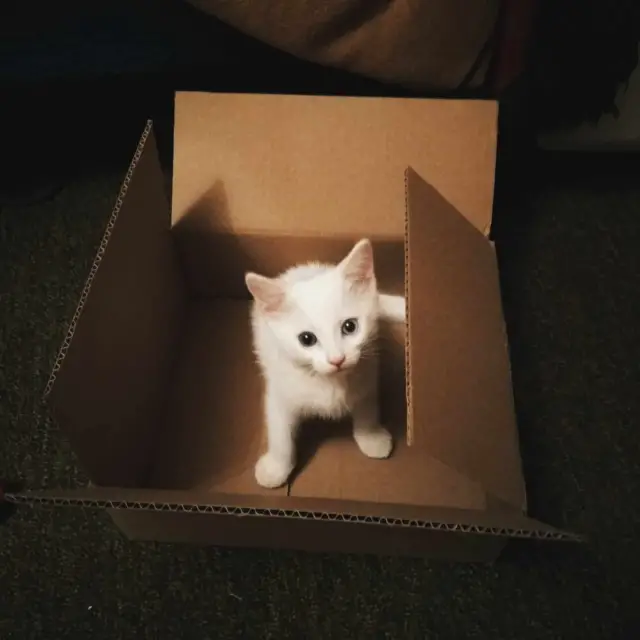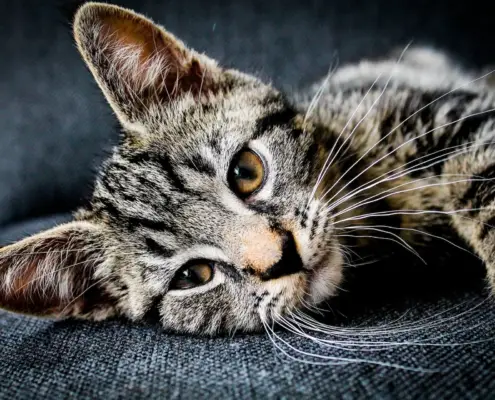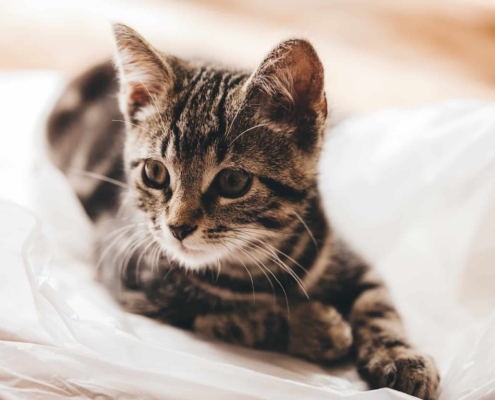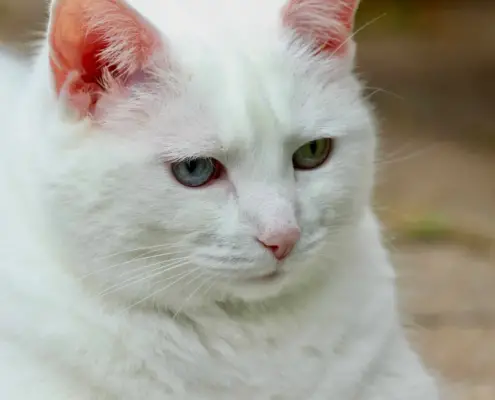
Cats, as natural-born predators, possess a remarkable set of instincts that govern their behaviors and habits. Among these instincts is the innate ability to use a litter box. Understanding how cats know to use the litter box can shed light on their unique nature. From the moment they are born, cats have an instinctual understanding of cleanliness and elimination. This knowledge is ingrained in their DNA, allowing them to effortlessly navigate the world of litter boxes.
Understanding the litter box instinct
The litter box instinct is deeply rooted in a cat’s evolutionary biology. In the wild, cats are meticulous about burying their waste to avoid attracting predators or alerting potential prey. This instinctual behavior has been passed down through generations, leading to the seamless litter box usage we observe in domesticated cats today. By understanding this innate instinct, cat owners can better appreciate their feline companions’ natural inclinations.
The role of mother cats in teaching kittens
Mother cats play a crucial role in teaching their kittens how to use the litter box. From a young age, kittens observe their mother’s behavior and learn by imitation. The mother cat will typically demonstrate the act of digging and eliminating in the litter box, teaching her offspring the appropriate behavior. This early socialization is vital in establishing proper litter box habits that will last a lifetime. As responsible cat owners, it is essential to provide a litter box and appropriate litter material for the mother cat to teach her kittens effectively.
The importance of early socialization
Early socialization is key to a cat’s development and can greatly influence their litter box habits. Exposing kittens to different textures and surfaces at a young age helps them become familiar with the sensation of different types of litter. By providing a variety of textures in the litter box, such as fine-grain clay, recycled paper, or natural wood pellets, owners can help kittens develop preferences and reduce the likelihood of litter box aversions later in life. Early socialization also involves introducing kittens to the sounds and smells associated with using a litter box, creating a positive association that will persist as they grow older.
The scent and texture preferences of cats
Cats have unique scent and texture preferences when it comes to their litter box. The type of litter used can greatly impact a cat’s willingness to use the litter box consistently. Some cats prefer unscented litter, while others may be more inclined towards a litter with a mild scent. Experimenting with different types of litter can help cat owners determine their feline companion’s preferences. Additionally, the texture of the litter is another important consideration. Some cats prefer a soft, sandy texture, while others may prefer a coarser material. By catering to their preferences, cat owners can ensure that their cats have a positive litter box experience.
Reinforcing the litter box behavior
Reinforcement is crucial in establishing and maintaining litter box behavior. Positive reinforcement, such as praise or treats, can be used to reward cats for using the litter box correctly. Whenever a cat eliminates in the litter box, providing verbal praise and a small treat can help reinforce the desired behavior. It is important to note that punishment should never be used when a cat has an accident outside the litter box, as this can create fear and anxiety, leading to further litter box aversions. Consistency and positive reinforcement will go a long way in reinforcing the litter box behavior.
Common challenges and how to address them
While most cats naturally know how to use the litter box, there are common challenges that cat owners may encounter. One such challenge is litter box aversion, where a cat avoids using the litter box altogether. This can be caused by various factors, such as a dirty or unpleasant litter box, medical issues, or stress. To address litter box aversion, it is crucial to keep the litter box clean and odor-free, provide multiple litter boxes in different locations, and address any underlying medical or behavioral issues. Seeking guidance from a veterinarian or animal behaviorist can also be beneficial in resolving these challenges.
Litter box training for adult cats
Although cats have a natural instinct to use the litter box, there may be instances where adult cats require additional training. This is especially true for cats that have been previously outdoors or have had inconsistent litter box habits. The key to successful litter box training for adult cats is patience and consistency. Providing a clean and inviting litter box, gradually introducing the cat to the litter box, and using positive reinforcement techniques can help adult cats develop the habit of using the litter box consistently.
Troubleshooting litter box issues
In some cases, cats may develop litter box issues despite proper training. These issues can range from inappropriate elimination to spraying behaviors. Understanding the underlying causes of these issues is crucial in finding effective solutions. Medical conditions, stress, changes in the environment, or territorial disputes can all contribute to litter box problems. Addressing any underlying medical issues, providing a calm and stress-free environment, and implementing behavior modification techniques can help resolve these issues and restore proper litter box habits.
Conclusion
Cats possess an innate ability to use the litter box, thanks to their natural instincts and early socialization. Understanding how cats know to use the litter box can help cat owners provide the optimal environment for their feline companions. By catering to their scent and texture preferences, reinforcing the desired behavior, and addressing any challenges that arise, cat owners can ensure that their cats have a positive and consistent litter box experience. From instinct to mastery, cats demonstrate their remarkable ability to navigate the world of litter boxes effortlessly.
If you have any further questions or concerns about your cat’s litter box habits, consult with a veterinarian or animal behaviorist for personalized advice and guidance.
If you enjoyed my article, I would appreciate you sharing it with your network.

Sima Ndlebe
Sima writes for CatBuzz. He is interested in Cats, Health and Fitness, and Entrepreneurship.
Published: 30 October 2023




